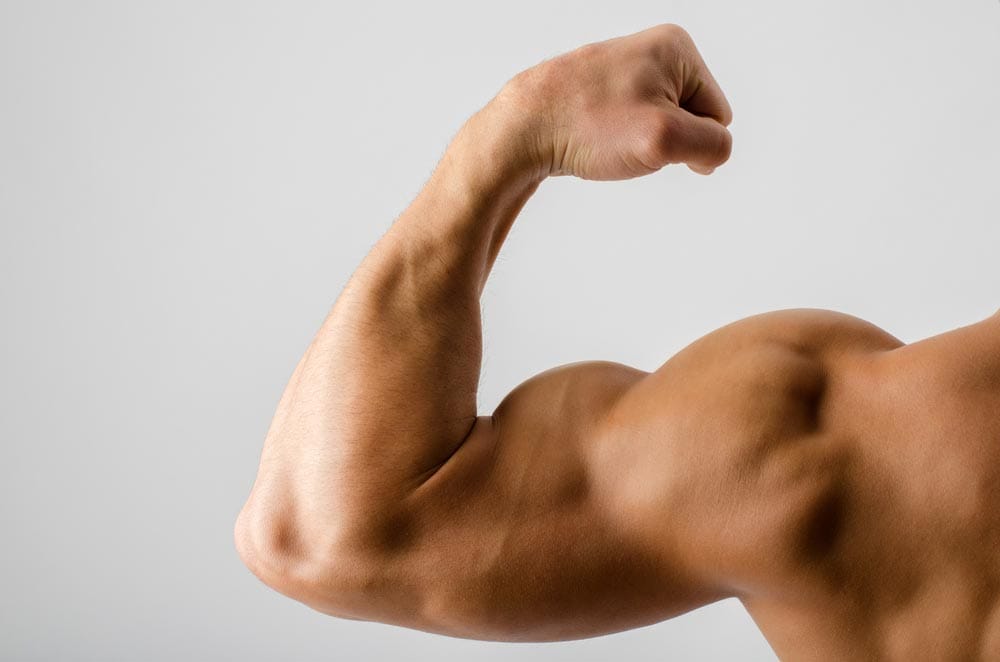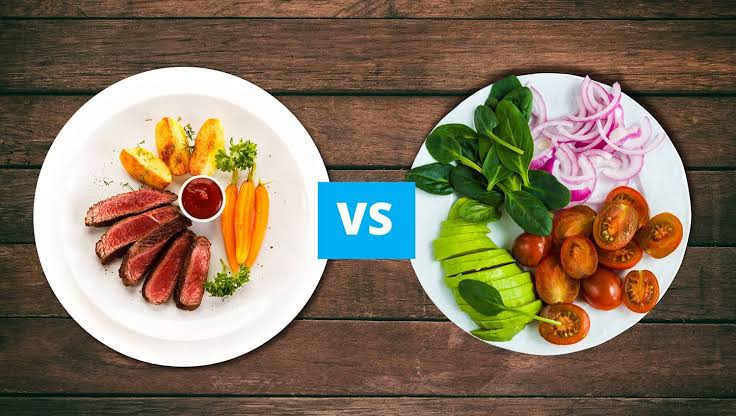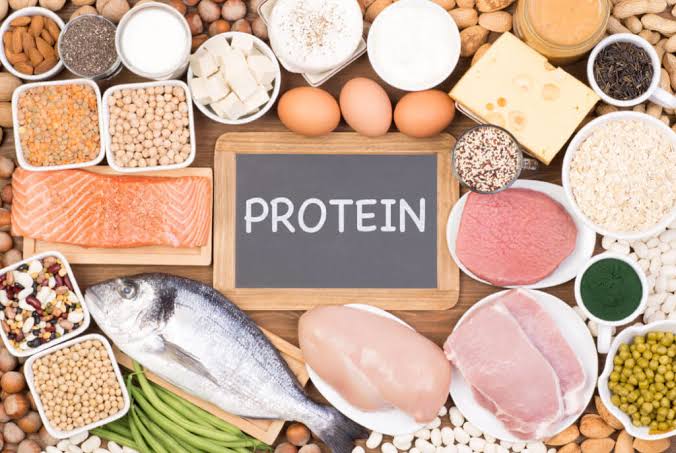
High-Protein Diets: The Secret to Building Muscle and Burning Fat Faster
High-protein diets play a vital role in muscle building and fat burning by repairing muscles, boosting metabolism, and promoting satiety. Fitness enthusiasts, athletes, and even those aiming for weight loss benefit from balanced protein intake. Both animal and plant-based foods provide excellent options. While generally safe, maintaining hydration and nutrient balance is crucial.
💪 Fitness Guru
40 min read · 24, Sep 2025

Introduction
When it comes to fitness goals, whether you want to build lean muscle, lose fat, or simply feel stronger, one nutrient consistently steals the spotlight—protein. Known as the building block of muscles, protein also helps regulate appetite, boost metabolism, and speed up recovery after workouts.
While many diets promise fast results, high-protein diets stand out because they are not about starving yourself or cutting all carbs. Instead, they fuel your body with the right nutrients to build muscle while torching fat. Combined with regular exercise, a high-protein diet is one of the most effective and sustainable ways to transform your body.
In this article, we’ll explore how high-protein diets work, the science behind them, their benefits, myths, and practical ways to adopt them into your daily lifestyle. In the world of health, fitness, and nutrition, one phrase often seems to dominate the conversation: high-protein diets. From athletes sculpting their physiques to everyday individuals simply looking to shed some weight, protein is praised as the ultimate nutrient. But why is protein so powerful? The secret lies in its unique role in muscle growth, fat burning, and overall body composition. Unlike fats and carbohydrates, protein is not just a source of energy; it is the very building block of life. Every cell, tissue, and organ in the body relies on protein to function properly, making it essential for both performance and health.
When it comes to building muscle, protein is non-negotiable. Muscles are made of protein fibers, and every time you lift weights, perform resistance training, or challenge your body physically, small tears occur in those fibers. The body repairs them by using dietary protein, making them stronger and larger in the process. This is known as muscle protein synthesis. Without sufficient protein, the body cannot properly repair or grow muscle tissue, no matter how hard one trains. This is why athletes, bodybuilders, and fitness enthusiasts often prioritize protein in every meal. It is not just about eating more food; it is about eating the right type of food to fuel recovery and growth.
Protein’s benefits extend far beyond muscle building. It plays a critical role in fat loss as well. One of the key reasons high-protein diets are so effective for weight management is the concept of satiety. Protein is far more filling than carbohydrates or fats. When you consume a protein-rich meal, it reduces hunger hormones such as ghrelin while boosting hormones that promote fullness, like peptide YY. This means you naturally eat fewer calories without constantly battling cravings. Over time, this caloric reduction leads to weight loss, but without the feeling of deprivation that often sabotages traditional dieting efforts.
Additionally, protein has a higher thermic effect compared to other macronutrients. This means that the body burns more calories digesting and metabolizing protein than it does with carbs or fats. Around 20-30% of the calories from protein are burned off during digestion, compared to just 5-10% for carbs and 0-3% for fats. This subtle but powerful effect boosts the metabolism, allowing for faster fat burning even at rest. For individuals aiming to burn fat while maintaining lean muscle, protein provides the perfect nutritional edge.
Another advantage of high-protein diets is muscle preservation during weight loss. Many people who diet and cut calories end up losing not just fat but also lean muscle tissue. This is problematic because muscle is metabolically active, meaning it burns calories even at rest. Losing muscle slows down the metabolism, making long-term weight maintenance more difficult. High-protein diets counteract this issue by protecting lean body mass while encouraging the body to burn fat for energy. This is why fitness professionals often say that protein is the secret to looking toned, lean, and fit rather than just skinny.
The benefits of protein do not stop at the physical level; they extend into lifestyle and daily energy as well. People who consume enough protein often report greater focus, more stable energy levels, and fewer blood sugar crashes. This is particularly important in today’s fast-paced lifestyle, where energy slumps often lead people to grab sugary snacks. A protein-rich diet stabilizes blood sugar, reducing sudden spikes and crashes, which helps maintain both physical and mental performance throughout the day.
So how much protein should one actually consume to unlock these benefits? While the recommended dietary allowance (RDA) for protein is around 0.8 grams per kilogram of body weight, this number is based on preventing deficiency rather than optimizing performance or body composition. For individuals seeking muscle growth or fat loss, higher intakes are often more effective. Studies suggest that consuming between 1.6 to 2.2 grams of protein per kilogram of body weight provides optimal results for most active people. For a 70-kilogram individual, that translates to roughly 112 to 154 grams of protein daily. Of course, needs vary depending on age, activity level, and goals, but these numbers serve as a practical benchmark.
Fortunately, meeting these protein needs is easier than it may seem. Whole foods such as lean meats, poultry, fish, eggs, dairy, beans, lentils, and nuts are all excellent sources of protein. For those with busy lifestyles, protein powders and ready-to-drink shakes offer a convenient solution without sacrificing nutrition. The key is consistency—ensuring that every meal and snack includes a source of protein. This balanced approach not only supports muscle and fat goals but also enhances overall health by providing essential amino acids, vitamins, and minerals that the body requires.
It is also worth noting that high-protein diets have been studied extensively for their safety. For healthy individuals with normal kidney function, there is little evidence that high-protein intake causes harm. The concerns often raised about kidney damage or bone health largely apply to individuals with pre-existing medical conditions. In fact, research indicates that protein may support bone health by improving calcium absorption and promoting bone strength, while also reducing age-related muscle loss, a condition known as sarcopenia.
Ultimately, high-protein diets are not a quick-fix trend but a scientifically backed strategy for transforming body composition. They provide the fuel for stronger muscles, the appetite control needed for weight management, and the metabolic boost that accelerates fat burning. Combined with regular exercise and balanced nutrition, protein truly becomes the cornerstone of a fit and healthy lifestyle. While there are many diets that promise results, few are as versatile, sustainable, and effective as those that prioritize protein.
In the journey toward building muscle and burning fat faster, protein emerges as the unsung hero. It empowers the body to recover, fuels lean growth, protects metabolism, and keeps hunger at bay. Whether the goal is athletic performance, fat loss, or simply feeling stronger and more energetic, the answer often lies in one simple adjustment: making protein the star of the plate. By embracing a high-protein diet, individuals can unlock their full potential and discover that the real secret to fitness is not hidden in complicated routines or fads but in the consistent power of protein.
What is a High-Protein Diet?
A high-protein diet simply means increasing your daily intake of protein-rich foods beyond the standard recommendation. While the average person requires about 0.8 grams of protein per kilogram of body weight, those aiming for muscle gain or fat loss often need 1.2–2.0 grams per kilogram.
Instead of focusing on restriction, this diet emphasizes balance—ensuring your body gets enough lean protein while still including healthy fats and complex carbohydrates.
Why Protein is Essential for Muscle and Fat Loss
Muscle Growth and Repair
Protein provides amino acids that repair micro-tears in muscles caused by workouts. This repair process builds stronger, larger muscles over time.
Boosts Metabolism
Protein has the highest thermic effect of all macronutrients, meaning your body burns more calories digesting protein compared to carbs or fats.
Reduces Hunger and Cravings
High-protein meals increase satiety hormones and reduce hunger hormones, keeping you full for longer and reducing unnecessary snacking.
Supports Fat Loss Without Muscle Loss
During calorie deficits, a protein-rich diet ensures that your body burns fat rather than breaking down muscle for energy.
Stabilizes Blood Sugar
Protein slows down the digestion of carbohydrates, preventing sudden spikes and crashes in blood sugar that often lead to overeating.
Best Sources of Protein
Animal-Based Proteins
- Chicken, turkey, lean beef
- Eggs and egg whites
- Fish like salmon, tuna, and mackerel
- Dairy: Greek yogurt, paneer, milk
Plant-Based Proteins
- Lentils, chickpeas, kidney beans
- Tofu, tempeh, edamame
- Nuts and seeds (almonds, chia, flaxseeds, pumpkin seeds)
- Whole grains like quinoa, oats, and brown rice
High-Protein Diet Benefits Beyond Muscles
- Fat Burning Powerhouse
- By boosting metabolism and reducing cravings, high-protein diets make fat loss easier and more sustainable.
- Increased Strength and Endurance
- Protein-rich meals improve recovery, meaning you can train harder and more frequently.
- Improved Skin, Hair, and Nails
- Proteins like collagen and keratin are key for healthy skin and strong nails.
- Better Hormonal Balance
- Adequate protein supports hormone production, including those that regulate metabolism and muscle growth.
- Supports Aging Muscles
- As you age, muscle mass declines (sarcopenia). High-protein diets help preserve lean mass and mobility.
Daily High-Protein Practices
Morning Routine
- Start with a protein-packed breakfast such as boiled eggs, a spinach omelet, or Greek yogurt with nuts.
- Add a glass of milk or a protein smoothie to kickstart muscle recovery.
Midday Boost
- Include lean protein at lunch like lentil curry with brown rice, or grilled chicken with veggies.
- Have a protein-rich snack like almonds, paneer cubes, or hummus with carrot sticks.
Evening Fuel
- Pre-workout: a banana with peanut butter or boiled eggs.
- Post-workout: protein shake, boiled chicken, or tofu salad.
- Dinner: grilled fish, paneer stir-fry, or mixed bean soup.
Weekly Habits
- Meal prep protein sources in advance.
- Try new recipes like quinoa salads, chicken wraps, or lentil soups.
- Balance protein with complex carbs and healthy fats for long-term energy.
- Stay hydrated—protein metabolism requires enough water.
Common Mistakes in High-Protein Diets
- Ignoring Balance
- Some people cut out carbs completely, which reduces energy. Always pair protein with veggies and whole grains.
- Relying Too Much on Protein Shakes
- Supplements are helpful but whole foods should remain the primary source.
- Skipping Fiber
- Too much protein without enough fiber can cause digestion issues. Include fruits, vegetables, and legumes.
- Overeating Protein
- Excess protein won’t turn into muscle—it can get stored as fat if calories are too high.
Myths About High-Protein Diets: Busted!
“High-protein diets damage the kidneys.”
→ False! In healthy individuals, high-protein intake does not harm kidneys. The issue arises only with pre-existing kidney disease.
“Only bodybuilders need protein.”
→ Not true. Protein supports weight loss, bone health, hormones, and overall wellness for everyone.
“You can’t get enough protein on a vegetarian diet.”
→ Completely false. Lentils, beans, quinoa, tofu, paneer, and nuts provide excellent protein.
“Eating more protein will instantly build muscle.”
→ Protein helps, but without resistance training, excess protein won’t build muscle. Exercise and diet work together.
Sample High-Protein Meal and Workout Plan
Breakfast
- Oats with almond milk, chia seeds, and a scoop of protein powder
- Boiled eggs or paneer cubes on the side
Mid-Morning Snack
- A handful of almonds or roasted chickpeas
Lunch
- Grilled chicken or tofu stir-fry with brown rice and sautéed veggies
- Lemon water for digestion
Pre-Workout
- Banana with peanut butter or a boiled egg
Workout
- 30–40 minutes strength training (squats, deadlifts, push-ups, planks)
- 15 minutes of HIIT cardio
Post-Workout
- Protein shake or spinach + banana smoothie with flaxseeds
Dinner
- Grilled salmon, paneer tikka, or mixed lentil soup
- Side salad with olive oil and lemon
Evening Wind Down
- Herbal tea or warm turmeric milk for recovery
Conclusion
A high-protein diet is more than just a fitness trend—it’s a scientifically backed approach to achieving your health goals. By providing the raw materials your body needs to build muscle and burn fat, protein acts as your ultimate ally in transformation.
But remember—protein works best when paired with strength training, balanced meals, and consistency. Whether you’re an athlete, a busy professional, or someone starting their health journey, adopting a high-protein lifestyle will give you more energy, better strength, and a leaner body.
Start small. Add one protein-rich food to every meal. Combine it with daily movement. Over time, you’ll notice not just physical changes but also mental sharpness and improved well-being.
Fuel your body with protein. Train with purpose. Transform your life.
Q&A Section
Q1:- What is a high-protein diet and why is it popular for fitness enthusiasts?
Ans :- A high-protein diet emphasizes consuming protein-rich foods like lean meats, eggs, dairy, legumes, and nuts. It’s popular because protein supports muscle repair, growth, and satiety, making it ideal for fat loss and strength building.
Q2:- How does protein help in building muscle mass?
Ans :- Protein provides amino acids, the building blocks of muscles. After strength training, muscle fibers break down and need protein for repair. Consuming sufficient protein stimulates muscle protein synthesis, leading to stronger and larger muscles.
Q3:- Can high-protein diets accelerate fat loss?
Ans :- Yes, protein boosts metabolism through the thermic effect of food (TEF) and reduces appetite by promoting fullness. This helps reduce overall calorie intake, making fat loss faster and more sustainable.
Q4:- How much protein should one consume daily for muscle growth?
Ans :- Most experts recommend 1.2–2.2 grams of protein per kilogram of body weight daily for muscle gain. Athletes and heavy lifters may need the higher end, while casual exercisers can stick to moderate intake.
Q5:- What are the best high-protein foods for a balanced diet?
Ans :- Great protein sources include chicken breast, fish, eggs, Greek yogurt, lentils, beans, tofu, and whey protein. Combining animal and plant-based proteins ensures a variety of essential amino acids.
Q6:- Are high-protein diets safe for long-term health?
Ans :- For most healthy people, yes. However, excessive protein intake without balance may strain kidneys or liver in those with pre-existing issues. Hydration and balanced nutrients are key for safe long-term adoption.
Q7:- Do high-protein diets improve athletic performance?
Ans :- Yes, they enhance recovery, reduce muscle soreness, and maintain lean mass, which improves strength, endurance, and overall athletic performance when paired with proper training.
Q8:- Can vegetarians and vegans follow high-protein diets effectively?
Ans :- Absolutely. Plant-based sources like lentils, beans, tofu, tempeh, quinoa, and soy products, along with protein powders, can help meet daily protein needs without relying on animal products.
Q9:- How does timing of protein intake affect results?
Ans :- Consuming protein evenly throughout the day, especially within 30–60 minutes post-workout, maximizes muscle protein synthesis and recovery. Spreading intake across meals is more effective than eating most at once.
Q10:- What mistakes should people avoid on a high-protein diet?
Ans :- Common mistakes include neglecting carbs and healthy fats, not drinking enough water, relying too much on supplements instead of whole foods, and overeating calories despite high protein.
Similar Articles
Find more relatable content in similar Articles

High-Protein Diets: The Secret to Building Muscle and Burnin..
High-protein diets play a vit.. Read More

Plant-Based vs. Animal Protein: Which is Better for Your Fi..
Choosing between plant-based a.. Read More

How Much Protein Do You Really Need? A Complete Guide for We..
Protein is key for weight los.. Read More

Quantum Computing and Fitness: Predicting the Perfect Workou..
“Discover how quantum computin.. Read More
© 2024 Copyrights by rFitness. All Rights Reserved.